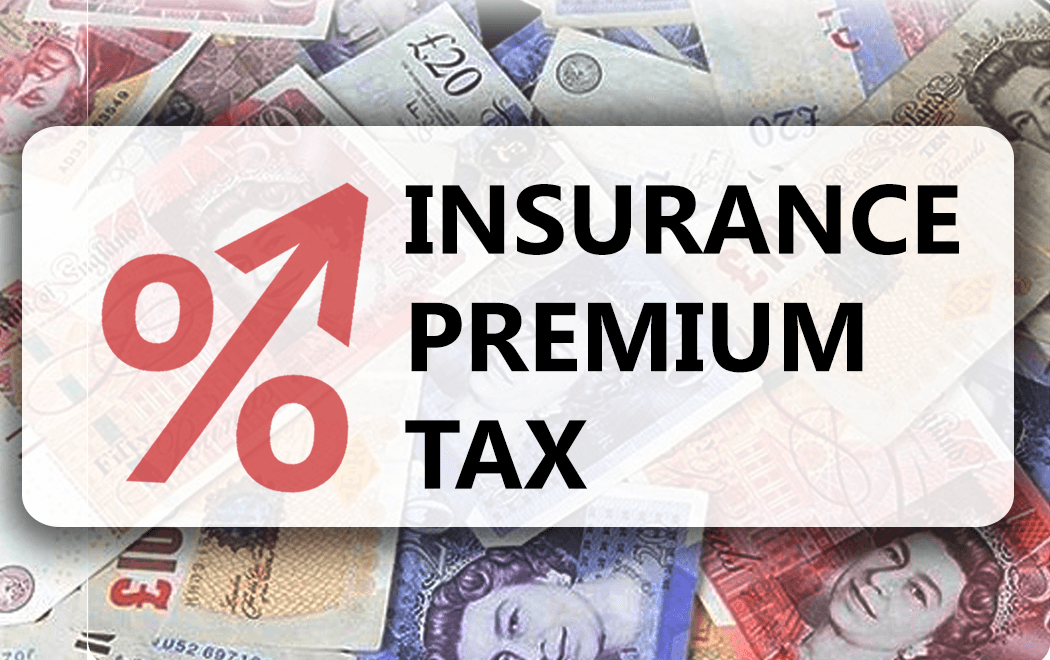Insurance Premium Tax
The Government in the UK has established the insurance premium tax to raise income from the insurance segment. In which the it was regarded as being under taxed and not subjected to value added Tax.

Insurance premium Tax(IPT) is a kind of indirect tax charged on general insurance premium in the united Kingdom.
The European legislature based on value added Tax (council Directive 2006/112/EC) implies that services performed by brokers and insurance agents such as insurance and reinsurance transactions, as well other services are exempted from VAT. As at 2009/2010 IPM generated £2.3 billion in fiscal Year.
The finance Act 1994 of the Insurance premium TAX was introduced by Kenneth Clarke in November 1993 Budget which was given a royal assent on 3 may 1994. Insurance Premium Tax is under the management of HM Revenue and Customs.
Is IPT the same as VAT?
Insurance premium tax(IPM) are not liable to value added tax on business and individual policies. However, you should note that the Tax is still payable in form of IPT(insurance premium Tax). the IPT has the standard and the higher rate.
The higher rate is for Travel ,electrical ,mechanical or other vehicle insurance. However the IPT rate is lower than that of VAT. The standard Rate was increased from 10% to 12% 1 June 2017. Insurance premium tax cannot be Recovered compared to VAT which can be recovered. The Higher Rate is set to 20%.
There are some unique characteristics From Insurance Premium Tax:
Insurance for Commercial products on foreign transit
long term insurance
insurance on commercial ships and aircraft
Re-insurance
premiums on risk extended beyond the UK.
What is the insurance premium rate?
The IPT rates is of two different form
standard rate is set to 12% and the higher Rate – 20%. insurers , who provide taxable insurance are to register an account for IPT. Furthermore, most insurers Agent who sell insurance in relation to the higher rate of IPT and charge other fees related to insurance separately over the premium rate.
In the 2016 autumn statement the new Chancellor Philip Hammond stated that the standard rate would increase from 10% to 12% from 1 June 2017.
Below are standard rates of IPT over the years
1 April 1997 to 30 June 1999 – standard rate of 4%
1 July 1999 to 3 January 2011 – standard rate of 5%
4 January 2011 to 31 October 2015 – standard rate of 6%
1 November 2015 to 30 September 2016 – standard rate of 9.5%
1 October 2016 to 31 May 2017- standard rate of 10%
From 1 June 2017, the standard rate is 12%
Below are Higher rates of IPT over the years
1 April 1997 to 4 January 2011 – a selective higher rate of 17.5% on insurance arranged through suppliers of commercial goods and services in connection with VAT.
From 1 August 1998 – the higher rate was extended to all taxable travel insurance, regardless of the type of supplier
From 4 January 2011 – the higher rate rose to 20%, in line with VAT
What is an insurance premium TAX example?
we have insurance premium tax on Auto ,life, medical and properties. This is been Paid yearly or monthly which is dependent on the Agreement policies. it is calculated using this format. for example lets assume you pay £400 monthly premium of health insurance, then the annual premium is calculated £400 * 12 = £4800.
insurance fees can be cheap as well you can pay as little as $10 per month. The premium Fee is dependent on what your fees covers, deductibles and other factors.
How Insurance Premiums Tax Works
The premium Tax is dependent and calculated based on the Agreement policy either annually, monthly or Semi-annually.
normally, insurers wants a insurance premium at non-expensive rate. you can navigate through each policies that provide discounts to encourage insurance purchase from the insurance suppliers.
an insurance agent can be used to find competitive quotes from top insurers, in other to reduce the rate you pay monthly while been covered.
Common Types Of Insurance Premiums
Auto Insurance Premium
This is an Insurance you pay for car. this covers your car, if there is a huge damage , the insurance company takes care of the damage. this is based on driving history, age, model of car and claim history.
Life Insurance Premium
This is based largely on the age you bought the life insurance premium. However, risk factors such as health conditions influences the premium insurance. The earlier you pay for the life premium insurance, the more affordable it becomes.
Homeowners Insurance Premium
It is always good to put your homes on premium insurance. So as to be safe when there is damage depending on home owner insurance policy. This fees are usually paid monthly or yearly depending on the company’s agreement with the insurer.
